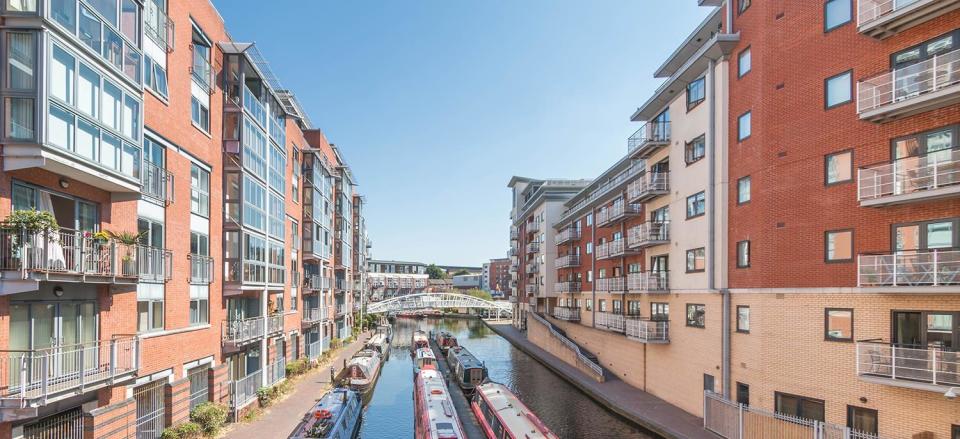April 16 is Mortgage Freedom Day
Today is the day that the average homeowner has earned enough to cover their mortgage repayments for the entire year.
Today is Mortgage Freedom Day – the day by which borrowers have earned enough money to cover their repayments for the whole of 2019.
It takes homeowners until April 16 to earn the £8,729 the average person spends on their mortgage each year, based on a typical annual income of £28,752 after tax, according to Halifax.
Andy Bickers, mortgages director, Halifax, said: “If every penny earned this year went towards their mortgage today would be the day that the average UK borrower could celebrate paying off their mortgage for the year.”
Mortgage Freedom Day also fell on April 16 in 2018, suggesting there has been little change in affordability for homeowners in the past year, despite the Bank of England base rate rising by 0.25% in August last year.
There has also been little change in the date since 2014, with it moving back by just six days, mainly due to wage growth and house prices remaining broadly stable during the period.
Why is this happening?
Mortgage repayments are the single biggest monthly expense most homeowners face, so it is unsurprising that it takes an average of nearly a third of a year for people to earn enough to cover them.
But interest rates at close to record lows and intense competition among mortgage lenders, have helped Mortgage Freedom Day remain relatively stable during the past five years.
Who does it affect?
Unsurprisingly, there is significant regional variation in when Mortgage Freedom Day occurs.
It comes soonest for people living in Scotland, arriving on March 8, while those in Northern Ireland can celebrate in on March 12.
The day also falls in March for homeowners in the north and north west.
At the other end of the scale, people in Greater London have to wait until June 20 before they have earned enough to pay their mortgage for the whole year, while it takes until May 22 for people in the south east and until May 5 for those in the south west.
In terms of individual local authorities, Copeland in Cumbria has the earliest Mortgage Freedom Day of February 18, and Brent in London has the latest one, with homeowners having to wait nearly seven months more until September 5.
What’s the background?
People who rent a home have to wait an average of 10 days longer than homeowners before they have earned enough to pay for their accommodation for a year, with Rent Freedom Day coming on April 26.
Like Mortgage Freedom Day, the date is unchanged compared with 2018.
But while regional variations follow similar patterns to those for Mortgage Freedom Day, the gap between the various dates is bigger for those who rent their home.
Northern Ireland has the earliest Rent Freedom Day of March 24, followed by the north at April 1.
Greater London again had the latest date, although at July 30, it comes more than a month later than Mortgage Freedom Day.
Top 3 takeaways
-
April 16 is Mortgage Freedom Day – the day by which borrowers have earned enough money to cover their repayments for the whole of 2019
-
Northern Ireland has the earliest Mortgage Freedom Day of March 12 and Greater London has the latest one of June 20
-
Rent Freedom Day comes 10 days later, falling on April 26
Government plans to end ‘no-fault’ evictions
The move would prevent landlords from evicting tenants without a good reason.
Landlords could be barred from evicting a tenant at short notice without a good reason as part of a government overhaul of the rental sector.
The Government has launched a consultation on abolishing Section 21 notices for eviction. The so-called no-fault evictions, currently allow landlords to evict tenants with just eight weeks’ notice once their fixed term contract has come to an end.
The move will effectively create open-ended tenancies, which the Government claims will bring greater peace of mind to people who live in rented accommodation.
Landlords will still be able to evict tenants for reasons recognised under law, such as if they fall into rent arrears or damage the property, but they may have to go through the courts to do so.
The Government also plans to amend the current rules so that landlords can regain their property if they want to sell it or move into it.
But despite these concessions, the Residential Landlords Association (RLA) warned it could put people off investing in property.
Why is this happening?
The Government claims that evidence shows no-fault evictions are one of the biggest causes of homelessness for families.
It adds that allowing them not only leads to tenants living with the worry of losing their home, but also contributes to people putting up with poor conditions as they are afraid to complain about problems in case they are evicted.
It hopes the move will not only give renters more stability but will also mean people no longer put up with sub-standard accommodation.
Who does it affect?
The move would obviously be good news for tenants, and it has been welcomed by housing charities.
But the RLA warned the Government there were “serious dangers” if it got the reforms wrong.
David Smith, policy director at the RLA, said: “With the demand for private rented homes continuing to increase, we need the majority of good landlords to have confidence to invest in new homes.
“This means ensuring they can swiftly repossess properties for legitimate reasons such as rent arrears, tenant anti-social behaviour or wanting to sell them.”
Jeremy Leaf, a former RICS residential chairman, also claimed that no-fault evictions affected only a small number of tenants.
He said: “On the ground, we don’t find this happens frequently at all, so hope that a thorough evidence-based consultation will flush out the extent of the problem.
“This will ensure that landlords do not desert the sector unnecessarily.”
The Institute for Public Policy Research welcomed the announcement but called on the Government to go further and introduce caps on rent increases and prevent landlords from evicting families within the first three years of signing a tenancy agreement if the only reason was to sell the property.
What’s the background?
The latest consultation is part of an overhaul of the private rental sector, which the Government has described as being the biggest for a generation.
Other changes that are coming into force including banning letting agents from charging fees to tenants and capping tenancy deposits at the equivalent of five weeks’ rent.
It has also announced plans to introduce a specialist Housing Court to resolve property disputes.
Around 4.5 million households currently live in privately rented homes.
Top 3 takeaways
-
The Government has launched a consultation on abolishing so-called no-fault evictions
-
The move will effectively create open-ended tenancies
-
The Residential Landlords Association (RLA) warned it could put people off investing in property


